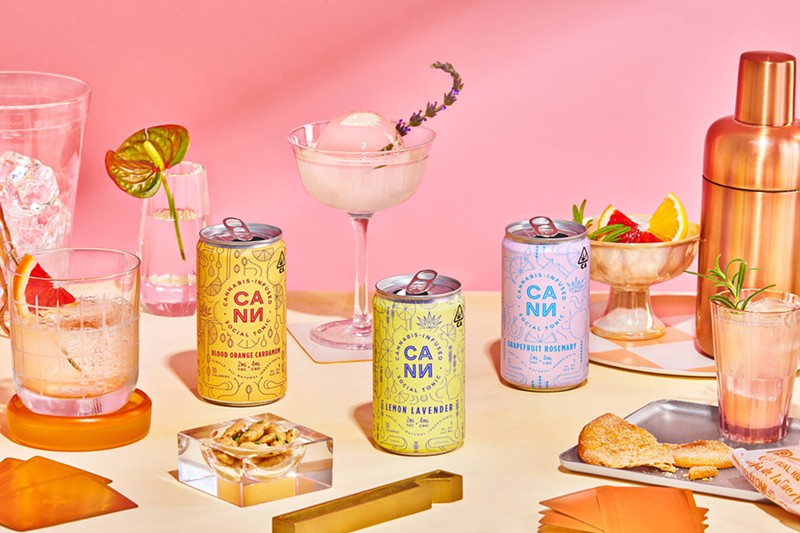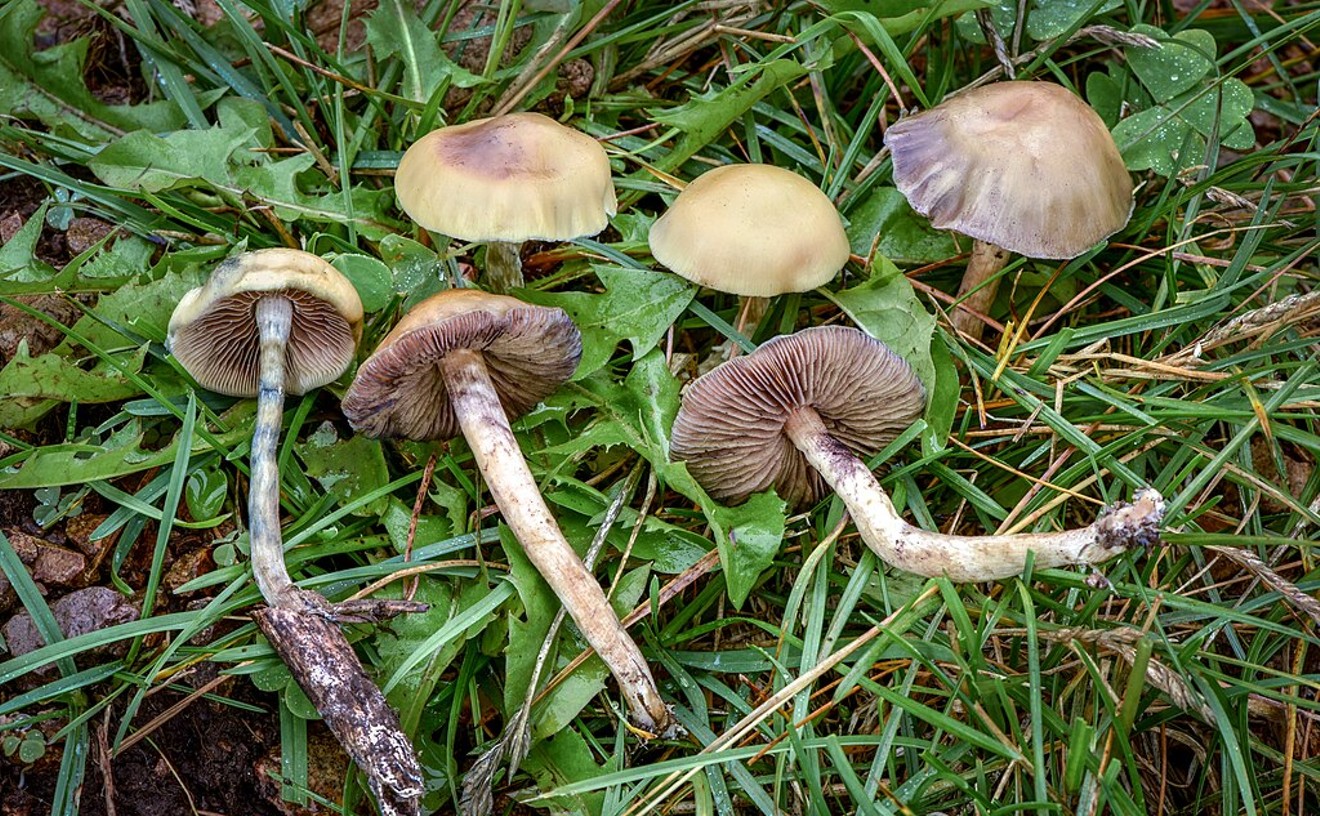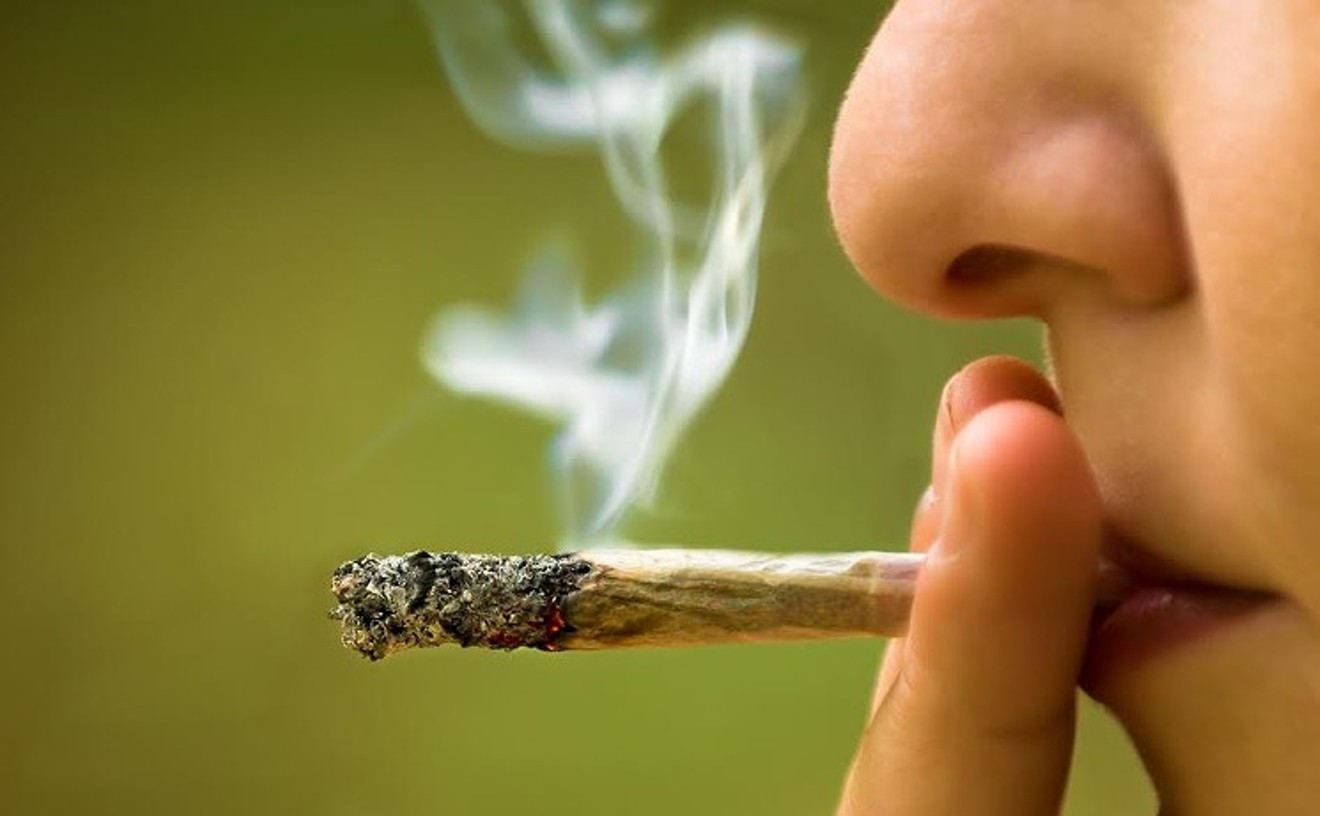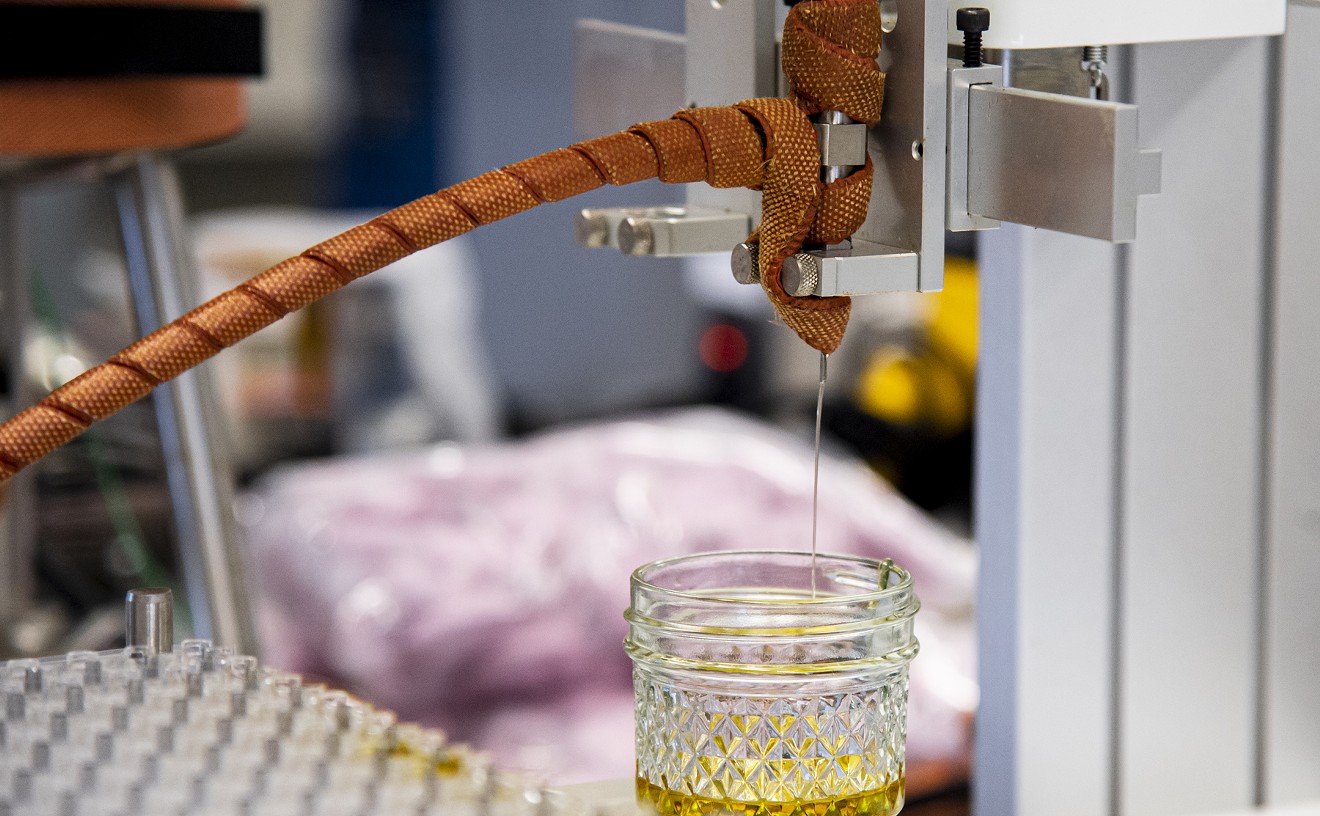Take a stroll past the drink freezers at the grocery store and gawk at the endless selection of wellness beverages. Kombucha, nitro coffee, matcha, and seltzers line the freezer in neat colorful order ready for your choosing.
One wellness beverage that has been gaining popularity is cannabis-infused. Brands boast of low-sugar content and antimicrobial properties, expanding their market share in the diverse world of wellness drinks, with no signs of stopping.
According to a 2020 report by Grand View Research, a market research and consulting firm headquartered in San Francisco, the global cannabis beverage market size was valued at $901.8 million in 2018 and is expected to expand to a whopping $2.84 billion in 2025 at a compound annual growth rate (CAGR) of 17.8 percent.
The surge in cannabis-infused beverage sales is fueled by growing consumer demand for wellness drinks, alternative ways to consume cannabis, and an influx of investment from beverage manufacturers looking to capitalize on the greater accessibility of cannabis.
The marijuana beverage market is segmented into cannabidiol (CBD) and tetrahydrocannabinol (THC) infusion. Most beverages sold in dispensaries will contain some form of THC, the psychoactive ingredient that differs from the hemp-derived CBD. Other retailers such as supermarkets, convenience stores, and smoke shops will sell strictly CBD-infused beverages, which are generally considered safe for consumption for all ages.
“While flower is the largest category in Arizona, market share has decreased from 52.6 percent in January [2021] to 44.9 percent in September,” concludes a 2021 Arizona marijuana market-share report by Headset, a cannabis consumer trends and market intelligence site.
BDSA, a market research center with expertise in the legal cannabis market, cites a 24 percent growth in sales for edibles across the country from 2019 to 2020.
While only 5 percent of those dollars are spent on beverages, the reduction in market share for bud is being replaced in part by cannabis-infused beverages, marking a shift in consumer interest.
Crystal Romero, who works at Harvest HOC of North Mesa dispensary, says that cannabis-infused beverages account for about 1 to 2 percent of daily sales there. But she has noticed a growing interest in consuming cannabis in liquid form.
“We just released these last week and they seem to be moving fairly well,” she says of a new product from Wynk, a THC-infused flavored seltzer. The 8.4-ounce drink comes in a pack of four for $20, which contains 2.5 milligrams each of THC and CBD per can. It comes in three flavors and boasts zero calories and an onset time of 20 minutes.
Get Buzzy
The market is dominated by nonalcoholic refreshments.
Lagunitas, Heineken’s fast-growing California beer label, launched a CBD- and THC-infused sparkling water called Hi-Fi Hops in 2018 that gets you high with 10 mg of THC in a 12-ounce drink, or a more mellow option of 5 mg each of CBD and THC. Last June, The Alkaline Water Company released its line of CBD Water that contains 20 mg of CBD in a 16.9-ounce bottle. And last month, one of the newest players in the cannabis beverage industry, Cann, raised $27 million in venture capital funding, along with investments from a number of celebrities including Adam Devine, Nina Dobrev, and Rosario Dawson.
The funding comes on the heels of a record year in sales, up 2.6 times in 2021 what they were the previous year. Nearly 10 million cans of Cann had been sold since the product's debut in 2019, according to a report by Morning Brew, a New York-based media company. The cannabis beverage brand specializes in the 8-ounce Social Tonic, which contains 2 mg of THC and 4 mg of CBD, and comes in a wide range of flavors, from lemon lavender to blood orange cardamom.
According to a Nasdaq article published in January about the growing investment landscape for cannabis-infused drinks, “Anheuser-Busch InBev (BUD) fueled a lot of optimism in the space when it inked a development deal through Canadian Brewer Labatt with cannabis grower and distributor Tilray (TLRY) back in 2018.” The deal resulted in the creation of Fluent Beverages, which launched a line of CBD–Infused tea using pure CBD Isolate.
"It’s something more and more people are coming in asking for,” says Sarah Mahoney, store manager at The Hemp and CBD Co. in Gilbert. She says CBD-infused beverages account for about 10 percent of her weekly sales.
Her CBD shop carries a 10 mg CBD nanotechnology alkaline water that sells individually or by the package. Nanotechnology or nano-emulsion refers to the CBD molecule's quick absorption allowing the consumer to feel its effects more quickly.
“Some of our youngest customers are around 3 years old,” says Mahoney. “As long as you’re using a broad-spectrum formula that doesn’t have any THC.”
While there are no psychoactive effects from consuming CBD, parents should pay special attention to the proper dosage when sharing with their young ones. Edibles with a high concentration of THC can be highly toxic to kids, and as reported by the Phoenix New Times this year, edibles account for nearly half of all child poisoning cases related to pot.
CBD, which is one of the two most prevalent active ingredients in cannabis, is derived from the hemp plant and produced in one of three forms:
- Full-spectrum: CBD that allows up to 0.3 percent of THC.
- Broad-spectrum: Contains several cannabis plant compounds but is free of THC.
- Isolate: A purified form of CBD that contains no other cannabis plant compounds.
Kealan Sullivan, a representative at Zen Leaf dispensary in Mesa says that although he sees little in terms of cannabis beverage sales, the store has a wide selection. “It’s a small niche of people,” he says in describing the typical cannabis beverage consumer who has consumed cannabis-infused beverages elsewhere and already knows the product.
Zen Leaf offers a selection of 100 mg THC beverages from Major, 10 mg THC-flavored sodas from Keef Cola, and 25 mg CBD seltzers from Wyld.
Drink It In
Whether it be seltzers, sodas, wines, or water, cannabis-infused beverages offer a number of different flavors, including sweet, sour, bitter, carbonated, non-carbonated, and beyond. The BDSA report states that roughly 40 percent of consumers cite taste as an influence of their product choice.
The variety of flavors that can be achieved in beverage form make them well suited to mask or minimize the taste of THC, which consumers may find unappealing.
"They’re a refreshing drink, especially on spring break,” says Tempe resident and Arizona State student Penny Coté, who shops at Harvest HOC. “It’s nice when it’s not overpowering,” adds Coté, who enjoys cannabis but doesn’t always like the taste when consuming edibles.
The BDSA report estimates that 57 percent of U.S. beverage consumers in fully legal states consume canna-beverages at least weekly, and do so for wellness/mental benefits as well as social purposes.
What's Next?
The U.S. Food and Drug Administration has expressed concern about the sale of CBD products and has published its potential safety risks. According to Mayo Clinic, research supporting the efficacy of CBD is still limited. Currently, the only CBD product approved by the FDA is Epidiolex, a prescription medicine used to treat seizures. Aside from Epidiolex, state laws on the use and benefits of CBD vary.While consumer acceptance of cannabis alternatives grows and more concrete findings on their health and wellness benefits are studied, more cannabis-infused beverages will be added to local dispensaries and supermarkets.
Mahoney touts the benefits of sparkling CBD water that is marketed to help deal with anything from anxiety to aches and pains. “If you're going to have water, why not have water with CBD in it,” she said.












